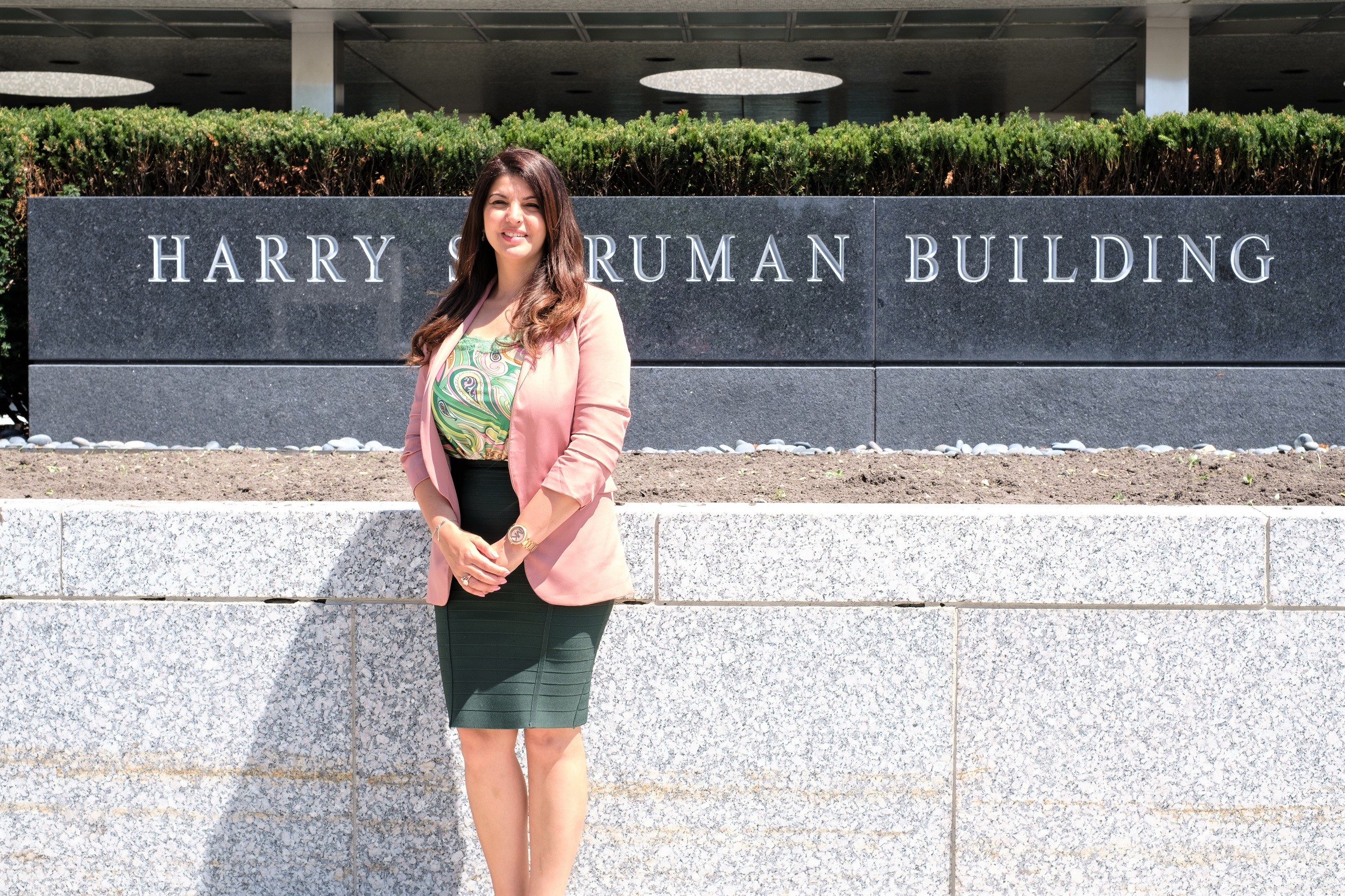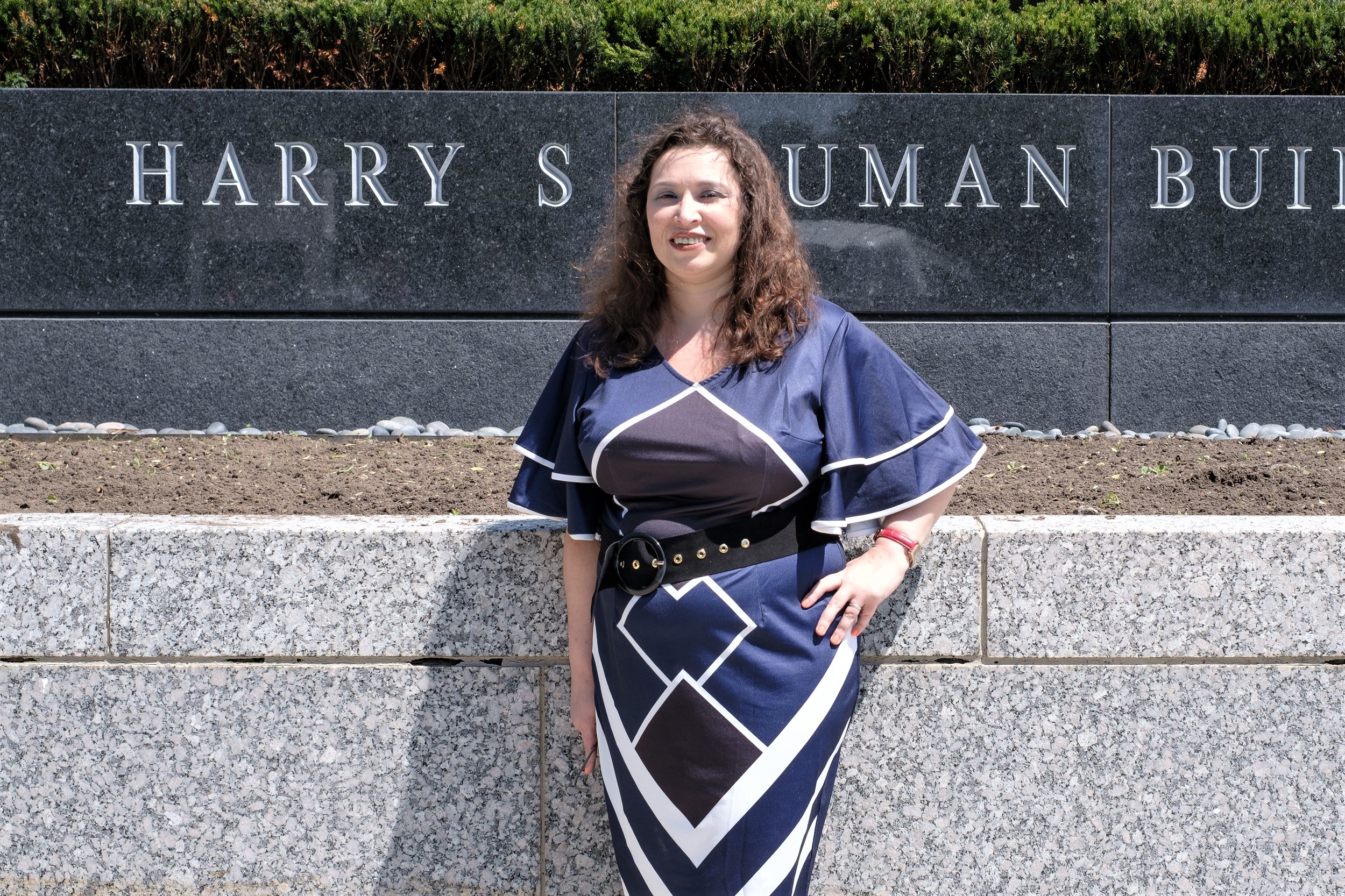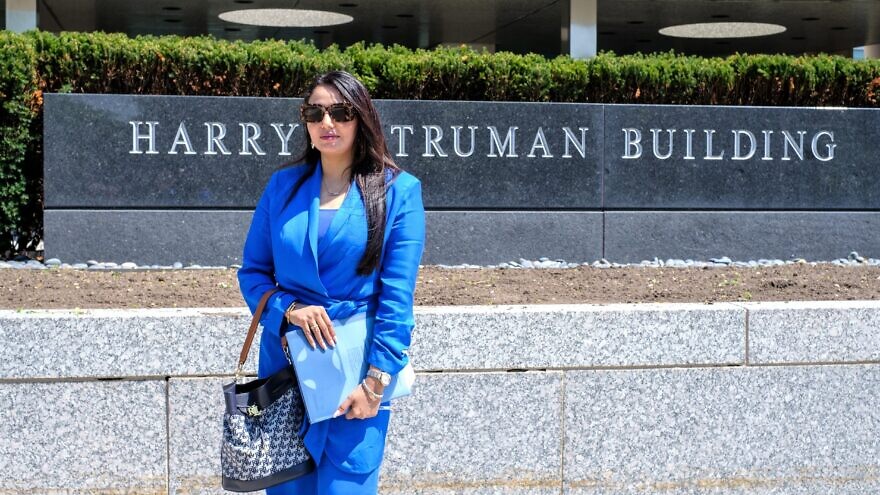At the same time that U.S. President Joe Biden traveled to the Middle East in July, a group of Yemeni women set off to Washington, D.C., to encourage the reinstatement of the Foreign Terrorist Organization (FTO) designation for Yemen’s Iran-backed Houthi rebels. The group members, representing a human-rights NGO, met with officials from the Biden administration, Congress and think tanks as part of their week-long trip.
The group included professor of political science Wesam Basindawa, who is originally from Yemen but now resides in Cairo. Basindawa is the founding president of the Yemeni Coalition of Independent Women and the leader of the 8th March Yemeni Union Women.
Timed with their visit, the group wrote a letter to Biden, which included a list of human-rights organizations that work with Basindawa’s organization that could deliver humanitarian aid to Yemen’s population without going through the Houthis.
“The Yemeni population suffers; they don’t get the aid because it’s blocked by the Houthis, [which are] using blackmail by getting at least 50% of this humanitarian aid from the [United Nations] and the [European Union],” said Msalmi. “So what we are suggesting is a list of human-rights organizations that can be also trustworthy to do the job, instead of, let’s say, negotiating with the Houthis, which is a terrorist organization.”
The Iran-backed Houthi rebels took control of the country in a violent coup that deposed the government and took over the country’s capital, Sanaa, with its government institutions and airport.
“Continuing to allow the aid to flow through them only cements their control and the people’s dependency upon them,” said Elie Piperz, who was traveling with the group as spokesman. “So even in the short term, you can get aid [into the area by working with the Houthis]; long term, it’s actually going to only strengthen and keep the conflict going.”

‘Funding attacks on our allies’
Iran’s support of the Houthi rebels in Yemen expanded the scale of the war significantly, causing a coalition of Arab nations led by Saudi Arabia to intervene militarily in the conflict in 2015 at the request of then-Yemeni President Abdrabbuh Mansur Hadi.
Former President Donald Trump placed sanctions on and designated the Houthis as a Foreign Terrorist Organization in November 2020.
Basindawa said that while this came with only three months left in his administration, it’s still better that it came late rather than not at all.
When Biden took office, his administration removed the Houthis from the list of FTOs within weeks, claiming that it was needed to ensure humanitarian aid is delivered to people in the occupied region.
Basindawa, however, said that nothing has changed in the region for the people, and worse, they are dependent on the Houthis for aid.
“It’s actually worse than that,” said Tsukerman. “They sold off the humanitarian aid … in order to consolidate control and to fill their war coffers. … We end up funding their attacks on our allies.”
Some of the most recent attacks by Houthis included drone attacks on the United Arab Emirates in January, followed by a drone attack in March on a fuel depot in Jeddah, Saudi Arabia.
But the group’s main mission for their visit to Washington is the protection of women in the Houthi-controlled territories as their human rights are severely curtailed by the strictly instilled Islamic laws.
While human rights for women are not ideal in the Middle East, Basindawa said that the Houthis target women specifically.
Msalmi added that women in the Houthi-controlled region “cannot have access to education, to work. They are forced to wear the hijab [Islamic headscarf], they cannot move [around in public] without a mahram, which means father, brother or husband.”
Unfortunately, said Msalmi, the United Nations and European Union only have access to information from NGOs that support the Houthi, or Muslim Brotherhood narrative, as opposed to the secular liberal perspective.
“We want to support these secular and liberal voices, human-rights activists, journalists—these people who are targeted by the Houthis, who are imprisoned, tortured and sometimes killed,” explained Msalmi. “[There are] a lot of human-rights violations. [The NGOs advising the United Nations and European Union] do not mention these violations. So thanks to the work of Dr. Wesam [Basindawa] and other NGOs, we have access to this narrative.”
Basindawa noted that “a lot of NGOs and international leaders talk about the Houthis as a policy movement. But they are not. They are a terrorist, racist, ideological movement. They are not a political movement.”
“They took over a political party, Ansar Allah, but it’s an extremist party that proposes extreme ideological solutions and is exploiting that abroad,” added Tsukerman. “It’s anti-American, anti-Israel, anti-Jewish. But also anti-anybody who is not Houthi, in general.”
Basindawa had recently participated in a dialogue at the European Parliament about women’s rights to support female leadership in Yemen, but she was one of only a few women. Msalmi said if any women are represented from Middle Eastern countries, they are usually wearing a head scarf and are not representative of modern ideals.
“So there is this kind of discrimination vis-à-vis women, which is the same ideology of the Muslim Brotherhood and the same ideology of the Houthis as well,” said Msalmi. “This is what the new leadership of women wants in the Arab world—to have free and liberal women.”
Basindawa, the niece of Yemen’s deposed Prime Minister Mohammed Basindawa, was raised in Yemen but studied in Egypt, where she got her Ph.D. in political science. She became involved in NGOs after the Arab Spring in 2011 brought the Muslim Brotherhood into power.
She and her colleagues believed that the biggest problem in the region was not the political regimes, but the education and culture and founded the Arab Initiative for Education and Development. She moved full-time to Egypt after Yemen’s coup, as she became a target and cannot currently return to Yemen out of safety concerns.

‘Include women in this negotiation’
During the group’s visit to the U.S. State Department, U.S. Special Envoy for Yemen Tim Lenderking was not available to meet, as he was in the Middle East preparing for Biden’s visit. Instead, the group met with Lenderking’s staff, including a senior policy and communications adviser.
The administration was not moved by their appeal, which the group felt was because it was worried about offending Iran, with whom they are negotiating to re-enter the 2015 nuclear deal. The administration was also focused on renewing the ceasefire, which was agreed to in April and renewed for an additional two months on Aug. 2.
“Humanitarian considerations continue to be an important factor in any decision regarding a Foreign Terrorist Designation of Ansar Allah,” a State Department spokesperson told JNS on background after the meeting. “We are currently focused on securing, extending and building on the U.N. truce in Yemen, which is having a tangible impact on millions of Yemenis and provides a credible opportunity for peace in Yemen. The parties need to continue to choose peace and move toward a permanent, nationwide ceasefire and the launch of an inclusive, comprehensive political process under U.N. auspices.”

Tsukerman stated that “the Houthis initiated this truce because they were being killed by the thousands, literally, by the Arab coalition, especially after the new government consolidated itself and became more united and started cracking down on some unhelpful politicians who were facilitating corrupt exchanges with the Houthis,” said Tsukerman. “So when they saw that the military battles were not going well for them, they started looking for a way to kind of divert attention while they were continuing missile shipments and preparing themselves for the next relaunch of this.”
Msalmi also pointed out that the dialogue to resolve the conflict did not include women; Basindawa is one of the few people around the world speaking from their perspective.
“Where are the women in this consultation and in this dialogue? They are not represented in NGOs. They’re not represented in political leadership,” said Msalmi. “So what we want then is also to include women in this negotiation, to include them in leadership positions, because women, they are targeted by the Houthis, they are eliminated, they don’t have access to work, they don’t have access to education. And this is part of the strategy and the ideology used by the Houthis—to completely exclude women.”
In a little more than half a week that the group was in Washington, they met with officials in the State Department, prominent Washington think tanks and members of both parties in the U.S. Senate and House of Representatives.
The group spoke with experts from the Foundation for Defense of Democracies and the Heritage Foundation, before making a trip to Capitol Hill to meet with members of Congress. The group met with Reps. Nicole Malliotakis (R-N.Y.), Mike Waltz (R-Fla.), Cathy McMorris Rodgers (R-Wash.), Elissa Slotkin (D-Mich.), Steve Scalise (R-La.), Young Kim (R-Calif.), Dan Crenshaw (R-Texas), Lisa McLain (R-Mich.) and the Republican Study Committee. They also met with Sen. Chuck Grassley (R-Iowa), Jacky Rosen (D-Nev.), and with the staff of Sens. Chris Coons (D-Del.), Joni Ernst (R-Iowa) and Ted Cruz (R-Texas).
Piperz said that every representative was enthusiastic about meeting them. The Republicans were all on their side, but even Slotkin had recently signed onto a letter calling for the Houthis to be re-designated as an FTO.
“Frankly, the goal was really to motivate those who already are like-minded, not necessarily to convince people who are on the fence,” said Piperz. “Let’s make sure that people understood this was an important issue. We’ve got to push them, we’ve got to use this time right now, and that we should not let this issue of the Houthis sort of fall on the wayside.”


























